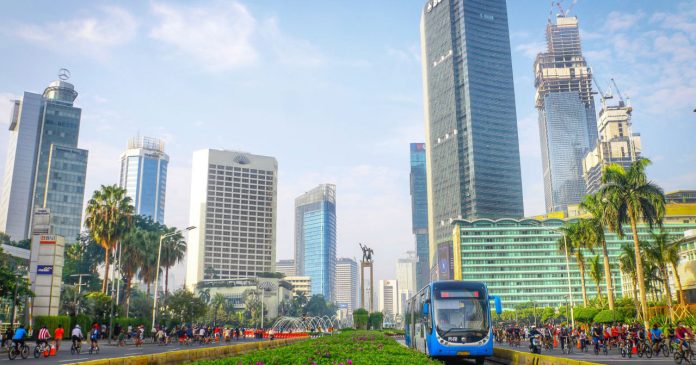Indonesia has reacquired its status as an upper-middle-income country, marking the bounce back of its economy following the pandemic.
The country’s gross national income (GNI) per capita, which measures the sum of money a nation earns divided by its population, reached US$4,580 last year. It increased by 9.8 % from the previous year, according to the World Bank database.
Countries earning over $4,466 in GNI per capita receive the upper-middle-income status from the World Bank. Every year, the World Bank updates its classification, which it says follows a similar methodology to its operational lending policy.
Indonesia sat as an upper-middle-income country based on its GNI per capita in 2019 but was relegated back to lower-middle status following the Covid-19 pandemic’s impact on the economy.
“Subsequently, the government has committed to maintaining the economic recovery quality,” Febrio Kacaribu, head of the Finance Ministry’s Fiscal Policy Agency (BKF), said in a statement on Monday.
Febrio attributed the improvement to the government’s success in bringing poverty back down to single digits in 2022 after it rose to above 10 % the previous year, as well as the declining rate of unemployment, as the economy approaches a return to pre-pandemic levels of employment.
During the pandemic, Indonesia saw its first annual economic contraction since 1998 as GDP dropped 2.07 % in 2020 amid battered consumer spending and private investment.
The country grew by 5.31 % last year, following the recovery of household spending and investments as well as export boosts due to high commodity prices.
Source: The Nation Thailand





















